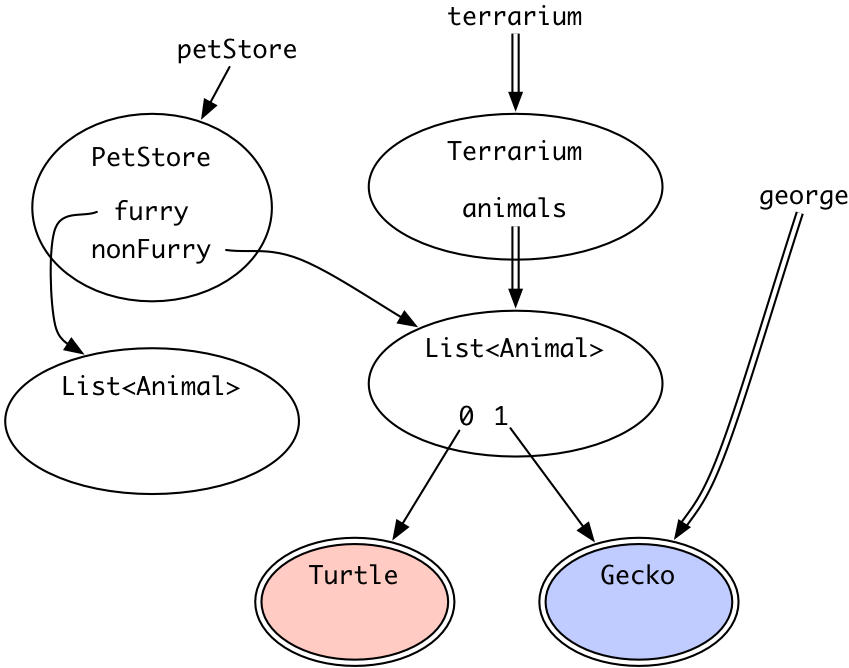Why Are Strings Immutable in Java? In-depth Analysis for Developers
Why Are Strings Immutable in Java? In-depth Analysis for Developers
Blog Article
What Is Immutable Strings and Exactly How It Functions
In the world of programs, recognizing the principle of immutable strings is critical for developing durable and safe applications. Immutable strings refer to strings that can not be modified after they are developed, making sure information honesty and predictability within the code.
The Fundamentals of Immutable Strings
Immutable strings, as a fundamental principle in programming, are personality series that can not be altered when they are produced. This means that as soon as a string is designated a worth, that worth can not be altered. In languages like Python and Java, strings are unalterable objects, bring about different implications in regards to memory management and data honesty.
One of the crucial benefits of immutable strings is that they supply a feeling of protection in information adjustment. Because the web content of an immutable string can not be changed, it guarantees that the original information continues to be undamaged, decreasing the risk of unintended modifications throughout program execution (Why are strings immutable in Java?). This home also streamlines debugging procedures, as designers can trust that when a string is specified, its value will certainly not be accidentally changed
Additionally, unalterable strings facilitate efficient memory usage. When a new string is created based upon an existing one, instead of modifying the original string, the new value is saved independently. This approach boosts efficiency by lowering memory fragmentation and streamlining memory appropriation processes. Generally, recognizing the essentials of immutable strings is essential for understanding shows concepts and maximizing code effectiveness.
Benefits of Unalterable Strings
Building upon the safety and security and performance advantages of immutable strings, their advantages expand to improving code dependability and simplifying simultaneous programs jobs. By being immutable, strings can not be changed after development, which gets rid of the danger of unexpected changes in the data they keep. This intrinsic immutability makes certain that once a string is produced, its worth stays constant throughout the program's implementation, lowering the possibilities of pests created by unexpected modifications.
Furthermore, immutable strings add to code dependability by making it easier to reason about the state of a program. Since strings can not be altered, designers can trust that a string will certainly constantly hold the exact same worth, simplifying debugging and maintenance initiatives. This predictability leads to a lot more trustworthy and secure codebases.

Execution in Programs Languages
Within various shows languages, the unification of unalterable strings is a fundamental facet that affects just more tips here how information is managed and manipulated within code structures. The implementation of immutable strings varies across various programming languages, with each language offering its very own mechanisms to sustain this principle.

On the other hand, languages like C and C++ do not have built-in support for immutable strings. Programmers in these languages need to by hand execute immutability by implementing regulations within their code to avoid straight adjustments to string items.
Best Practices for Collaborating With Immutable Strings
When managing unalterable strings in programming languages like Java and Python, adhering to best techniques guarantees efficient and secure data control. One of the crucial finest methods is to make use of StringBuilder or StringBuffer instead of straight controling strings, specifically when dealing with considerable concatenation operations. These classes give mutable choices for string manipulation, aiding to stay clear of unnecessary memory allocations and improving efficiency.
Another best method is to make use of string interpolation or formatting functions supplied by the language instead of manual concatenation. This not only boosts readability but likewise help in protecting against usual challenges such as unintentional string alterations. Additionally, when working with delicate data such as passwords or API secrets, it is important to stay clear of storing them as simple message in immutable strings. Making use of safe and secure storage space mechanisms like char selections or specialized collections for taking care of delicate details assists minimize security risks related to unalterable strings.
Real-world Applications and Instances
Checking out sensible applications of immutable strings in different markets reveals their substantial effect on data stability and system integrity. In the medical care industry, immutable strings play an essential function in making certain the safety and privacy of patient information. By stopping unapproved alterations to sensitive info such as clinical documents and prescriptions, immutable strings aid preserve conformity with strict personal privacy laws like HIPAA.
Banks also profit from the immutable nature of strings to boost Your Domain Name the safety of consumer data and deal records. Immutable strings help stop fraud and unapproved modifications to economic details, giving a robust defense versus cyber threats and making certain the count on and confidence of clients.
Verdict
To conclude, immutable strings are dealt with and unchangeable sequences of characters that supply benefits such as string safety and improved efficiency in shows. They are implemented in different shows languages to make certain data stability and protection. Ideal techniques for dealing with unalterable strings include avoiding direct modifications and using techniques that return new string items. Real-world applications of immutable strings consist of data encryption, caching, and string manipulation tasks.
Unalterable strings refer to strings that can not be altered after they are produced, guaranteeing information integrity and predictability within the code. When a new string is created based on an existing one, rather than customizing the initial string, the new worth is kept individually.In languages like Java and Python, strings are unalterable by default, meaning that when a string things is produced, its value can not be changed - Why are strings immutable in Java?. Finest techniques for working with unalterable strings consist of preventing direct adjustments and making use of approaches that return brand-new string things. Real-world applications of unalterable strings consist of data security, caching, and string manipulation tasks
Report this page